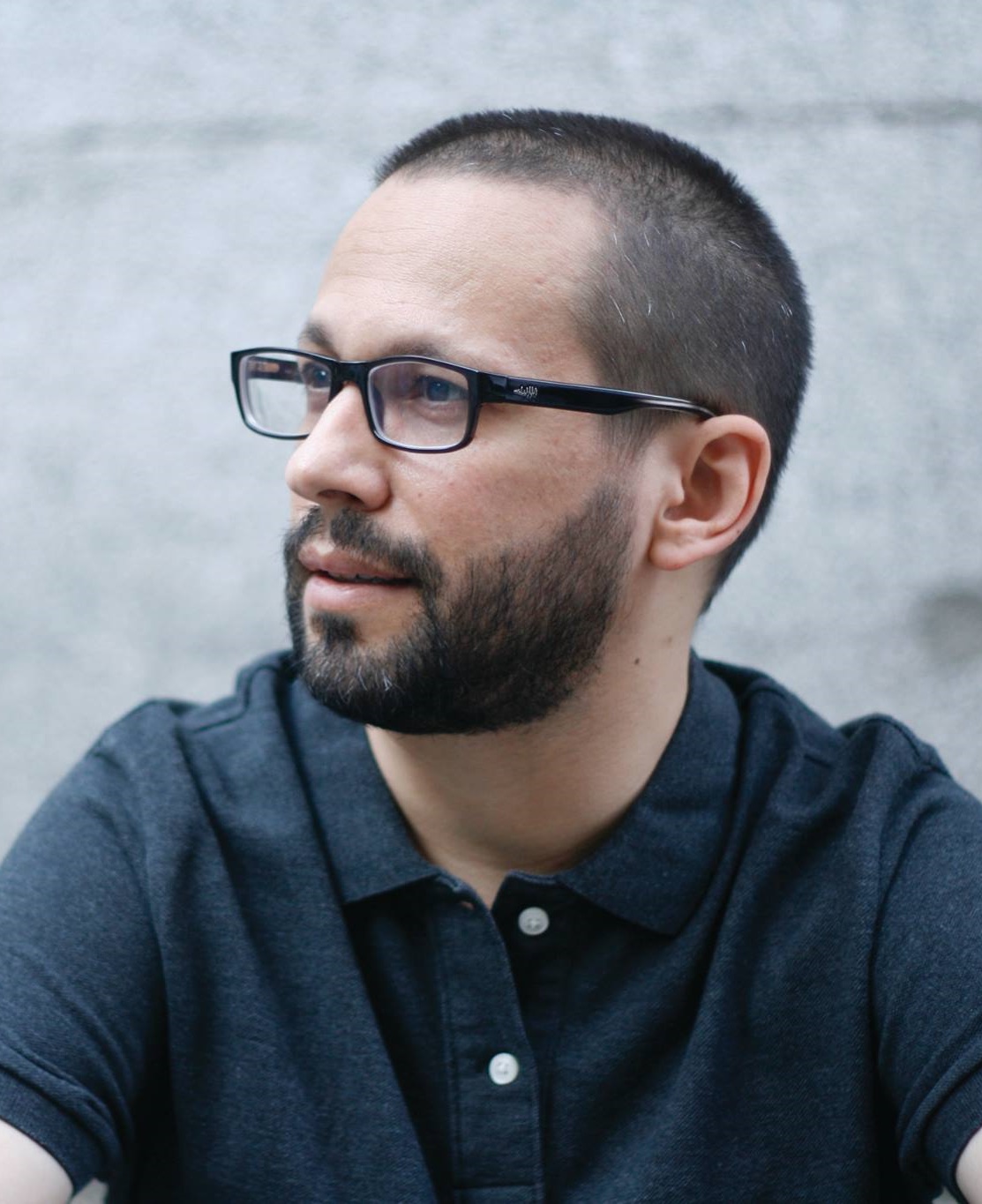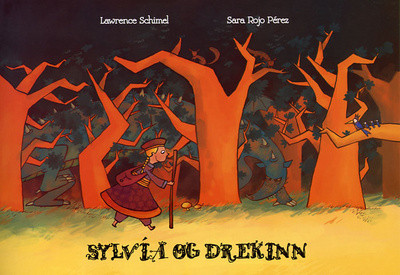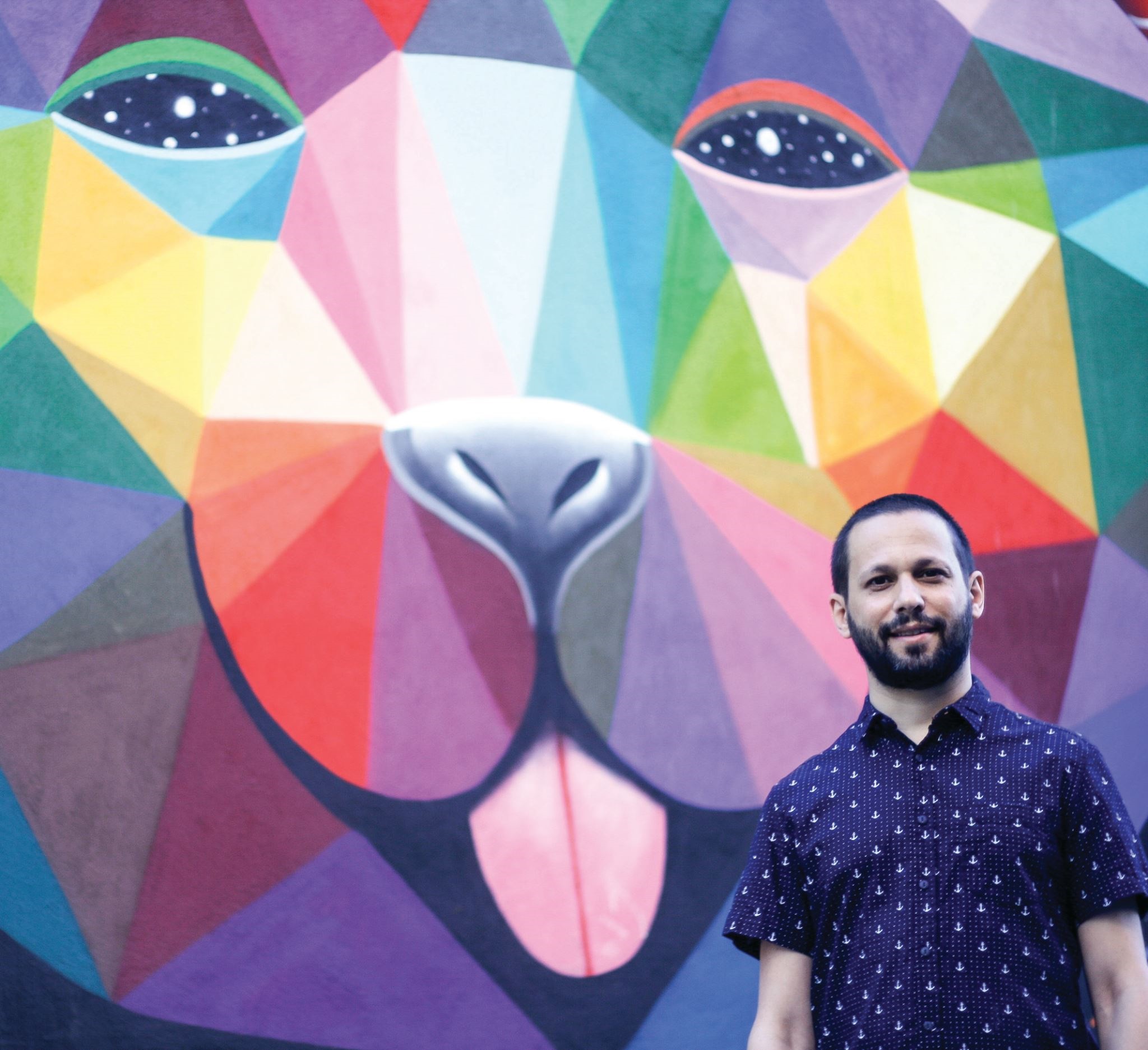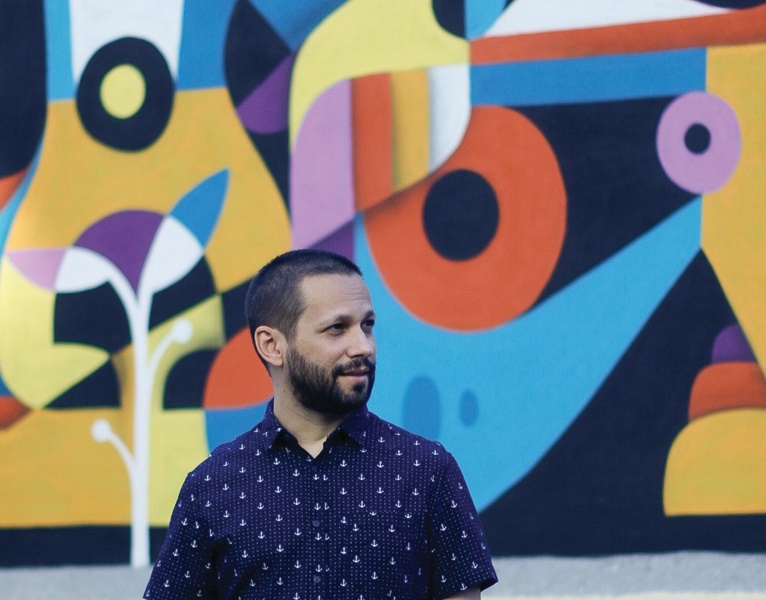Author Lawrence Schimel will take part in Mýrin the international children’s literature festival in Reykjavík that starts today. There he will be discussing one of his children’ books which have a gay family, as well as engaging in other events. In an interview with GayIceland Schimel says it’s extremely important to include LGBT+ characters in children’s books so they reflect the world that children already live in.

“A lot of my books, both for adults and for children, are concerned with representing those characters whose voices are often suppressed or erased, whether actively or passively,” says author Lawrence Schimel, who will be taking part in Mýrin, the international children’s literature festival that starts today at the Nordic House in Reykjavík and ends on Sunday.
Lawrence will take part in three events during the festival. “One is a reading of my book La adventura de Cecilia y el dragón (in English “The adventure of Cecilia and the dragon” or “Sylvía og drekinn” in Icelandic) on today, Thursday morning at 9.15. One is a panel discussion called “Differently Normal” on Friday at 15pm where we will discuss what is “normal” and who is considered “different” and the treatment of minorities and “outsiders” in children’s books,” says Lawrence and goes on.
“And finally I am on a panel on Saturday at 11am, “Animals, Mirrors and Masks”, where we will talk about using other creatures to portray humans, and the advantages and disadvantages in doing so, in terms of addressing race, sexuality, and other social issues.”
At the literature festival Lawrence will talk about his picture book for children, Amigos Y Vecinos, which includes a gay family. “When the book was published in Spain, there were already a few other picture books that depicted same-sex families. It was actually much more radical to show a single mother who works in a shop, and whose son visited the home of his friend and his two fathers until she came home from work,” says Lawrence.
“Same-sex marriage has already existed in Iceland since 2010 … so these families are real and it is important for all children to be able to see them reflected in the cultural production.”
Even though he writes about a lot of different issues in his books he says the story is the most important thing. “Some of my other picture books have also tackled issues like HIV positive women, children who are adopted, immigration and the people who are left behind, etc. But no matter what social concern might underlie a children’s book, the most important thing is always to tell a good story, or you will lose the reader’s attention and then you won’t be able to transmit any subliminal idea or message.”
But does Lawrence feel it is important to include LGBTI+ characters in books for children?
“Absolutely. Our LGBT lives are just as interesting and important as heterosexual ones, and it is especially important for the children’s books to reflect the world that children already live in. Same-sex marriage has already existed in Iceland since 2010, and in many other parts of the world for much longer, so these families are real and it is important for all children to be able to see them reflected in the cultural production,” he says and adds that he wants to see more books that have visible LGBT+ characters.
“Unfortunately, so far, most children’s books with LGBT characters are treated as “special problem” books, that is, the fact of being LGBT is still a central part of the theme of the book. We are still far from having a book called I WANT A PET, say, and simply have two moms or two dads as the parents, even though the book is not at all about the fact that it is a same-sex family and that should ideally never be even mentioned or otherwise discussed in the book, they are just a family.”
Tiresome that all the characters are homosexual
The amount of children’s books that tackle issues of all kinds of minority groups seems to be growing and they are more visible than ever. Why is that?
“I think that there are a few factors that come into play,” says Lawrence with a contemplative look on his face.

“One is that people are challenging more and more the Western status quo where power is primarily in the hands of white, heterosexual, upper-class Christian men. Stories about such people, as the dominant power group, are treated as universal, whereas the stories of anyone who writes from other perspectives are often dismissed or belittled, by critics, publishers, etc., as being lesser works, only of interest to “niche” markets, etc. You can see this sort of prejudice all the time in how books by women and/or by homosexuals are treated,” says Lawrence and gives us a clear example of exactly this.
“I remember how when Jennifer Egan won the National Book Award in the United States a few years ago, the Los Angeles Times headline wrote about how Jonathan Franzen lost the award. So here it is a woman who has won one of the major literary prizes but the dialogue is still about the man, who lost,” he says with a sigh and recalls an incident that he was faced with a while back.
“the stories of anyone who writes from other perspectives are often … belittled, by critics, publishers, etc., as being lesser works. You can see this sort of prejudice all the time in how books by women and/or by homosexuals are treated.”
“In terms of my own work, I remember how when my first collection of stories was published, the Spanish newspaper El Páis wrote a review which said the stories were ”crafted with skill and awareness of the genre, but it was tiresome that all of the characters were homosexual.” I have never seen a review that complained that a book only had heterosexual characters in it, because everything is measured by the dominant power group.”
Girl friendship and adventures
As mentioned earlier, Lawrence will also talk about his children’s book, Silvia and the Dragon, at the festival, a book which was published by Salka in Iceland. “It’s a book about a girl who desperately wants to see a dragon. The problem is that the only girls who appear in her story books are either princesses or goose girls and she is neither: she comes from a middle class family. But she still wants to have an adventure and find a dragon! She wonders at first if she should flip the traditional story on its end and rescue a prince who was captured by a dragon. But what would she want with a prince who was foolish enough to get captured by a dragon? And anyway, she wasn’t interested in the prince, but in the dragon. So it is really a story about girl friendship in the end – and, of course, adventures,” says Lawrence.



